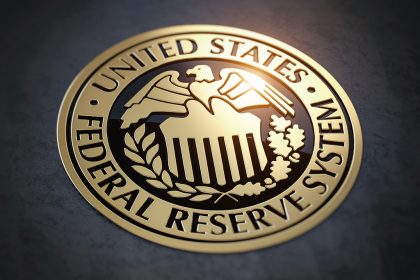Two U.S. Congressmen have written to the Federal Reserve, on the possibility of tokenizing the dollar. The Congressmen believe that such a move is inevitable.
Even as the U.S. Congress bites down hard on Facebook and the social media giant’s grand plans of issuing its own digital currency, a recent event has corroborated the general idea that the problem with the Libra might not be the fact that it’s a digital currency itself, but that it’s being issued by Facebook. This is because, two Rep members have revealed concerns about the inevitability of digital currencies in the near future, suggesting that the United States should start getting used to the idea of issuing a national digital currency.
In a two-page letter signed by Reps French Hill and Bill Foster and addressed to Federal Reserve Board Chairman Jerome Powell, the Congressmen mention that because of studies which have shown that at least 40 countries all over the world have either developed or are working on their own digital currency, “the primacy of the U.S. Dollar could be in long-term jeopardy from wide adoption of digital fiat currencies.” The Congressmen gave examples of Sweden’s “e-krona”, Uruguay’s “e-Peso”, as well as the Chinese digital Yuan which is expected to be launched sometime soon.”
The letter further mentions suggestions previously made by Christine Lagarde, the president of the European Central Bank, who posited that central banks should do more than regulating cryptocurrencies and begin the development of theirs. The letter then offers a few disadvantages of leaving digital currencies in the hands of the private sector:
“Relying on the private sector to develop digital currencies carries its own risks, including loss of control of monetary policy, as well as the ability to implement and enforce effective anti-money laundering and counter-terrorism financing (AML/CTF) measures. The Facebook/Libra proposal, if implemented, could remove important aspects of financial governance outside of U.S. jurisdiction.”
The Congressmen then conclude the letter with questions directed at the Federal Reserve, centered around whether or not there are plans to develop a digital dollar, plans to respond to increased global adoption of digital currencies, as well as if there are any legal, regulatory or security issues which would prohibit the Federal Reserve from issuing and developing a digital dollar.
According to Reuters, the Philadelphia Federal Reserve bank president, Patrick Harker, also agrees with this, suggesting that it cannot be avoided for much longer. He, however, believes that even though it’s necessary to get prepared, the United States should not be at the forefront of a move like this. Speaking at a community banking conference, Harker said:
“Frankly I don’t think we should be the first mover as a nation to do this. [But] it is inevitable… [and] I think it is better for us to start getting our hands around it.”
The use of digital currencies, just as the Congressmen wrote, is generally gaining some traction. During the Economic Policy Symposium which took place last month in Jackson Hole, Wyoming, the Bank of England governor, Mark Carney, has said that the current international dependence on the dollar will be disadvantageous in the long run. Carney suggested that the creation and adoption of a “synthetic hegemonic currency” (SHC), which will basically be a network of central bank digital currencies, would help disrupt this dependence.
next